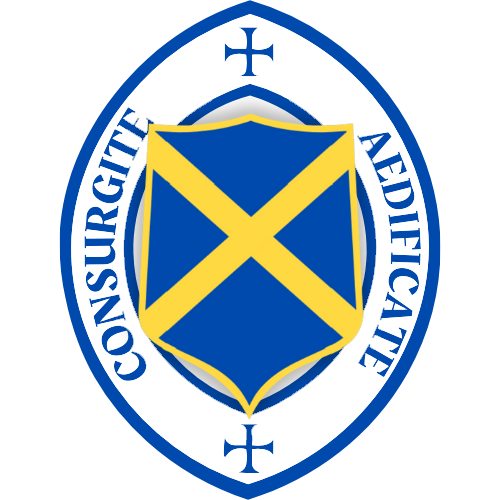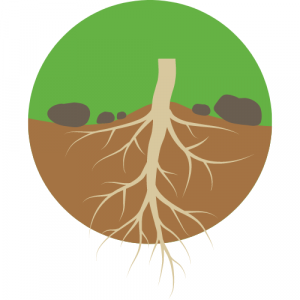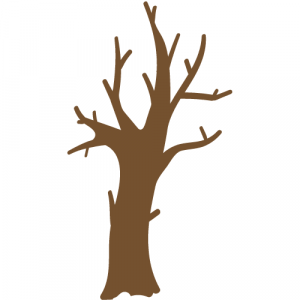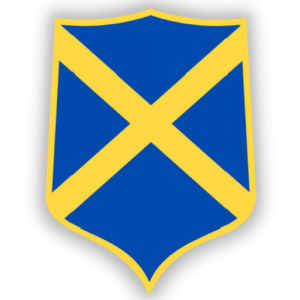“For the sole purpose of education is simply this: to teach men how to learn for themselves; and whatever instruction fails to do this is effort spent in vain.”
DOROTHY L. SAYERS
In taking on the challenge of establishing a sound educational system that is truly Christian, more is involved than having Bible readings and lessons, offering prayers, and maintaining a disciplined moral environment. The Christian school must first teach“Christianly”—that is, its curriculum must reflect the Divine perspective in each subject as it is rooted in Holy Scripture. There are no neutral subject areas. Secondly, the Christian school must teach its pupils to think “Christianly.”

In the western world, our way of life, our theological and intellectual history, our laws and social customs, have all been handed down to us. Our culture has grown from the heritage of the ancient Hebrews, Greeks, and Romans. As the Gospel spread throughout the ancient classical world, the early Christians developed a teaching method around what were called the ‘Seven Liberal Arts.’ This method grew and developed down into the Middle Ages and had remarkable success. The first three of these Seven Liberal Arts were called the Trivium and were the means for giving students the tools of learning.
Our adoption of the Trivium as a method of instruction was essential in the formation of our school upon a classical model. The Trivium has three parts. The first, grammar, concerns the elements of any given subject. Logic is the second, and deals with the reasoning which ties all the various elements together. Rhetoric is then used to teach the students how to express what they have learned in a polished and effective way. At St Alban’s, we apply these three categories in every discipline, and every discipline can be divided into these categories.
Each child also has an innate affinity for the different stages of learning of the Trivium. We ensure that students of different ages learn according to those innate abilities. From the chanting of math and grammar of the elementary students, to the logic class with debate and discussion in junior high, to inventive rhetoric and study of literature at the senior high school level, the various stages of the Trivium are thoughtfully lined up with the abilities and desires of the students.
The Trivium

THE GRAMMAR STAGE
In the grammar stage, young students are taught the basic set of knowledge for each subject and the basic skills for mastering that knowledge.
The study of Latin is begun in earnest in the grammar stage. By studying Latin, the student learns the mechanics of all language. Eighty percent of all English words, especially in the sciences and technology, are rooted in Latin, making Latin invaluable to any student in building a powerful vocabulary. It is a proven fact that students with a Latin background score higher on college entrance exams. As students become skillful with the learning tool of grammar, they gain the ability to navigate through the mass of information they will face.

THE LOGIC STAGE
In the logic stage, the curriculum takes advantage of the argumentative ability of the older pupil, channeling his natural inclination toward sound reasoning and careful thinking.
The student learns to structure sound arguments, and to recognise the fallacies of argument that typically arise in advertising, politics, or civil and cultural disputes. Students so trained are not easily duped by smooth talkers, crafty orators, or misleading statistics.

THE RHETORIC STAGE
The rhetoric stage brings to fruition the art of learning.
The student begins to integrate a whole sense of life, of the world, and of his place in it. At the same time, he refines his ability to express himself correctly, persuasively, and eloquently. As a Christian community, St. Alban’s is committed to the belief that all knowledge is and must be tethered to Christ, “in whom are hidden all the treasures of wisdom and knowledge” (Col. 2:3).
A St Alban’s Education
St Alban’s is committed to an educational vision that is both Christian and Classical. This model for education not only shaped the ideals embodied in Western civilisation, but nurtured Christianity’s influence on the world.

The four pillars of education — oratio, studium, labor, recreatio — set the framework in which St Alban’s equip its families. We make great effort to give such a Christian and Classical education to every parent and child we receive, to provide a thorough curriculum, community for families, and ongoing support through weekly meetings.
We believe that when family, church, and school reinforce, support, and agree with each other in the Christian and Classical training of children, these young people will become outstanding members of their communities, to the glory of God.
Education at St. Alban’s Grammar begins in the early years with the three R’s—Reading, [w]Riting, and [a]Rithmetic—and strives to equip its graduates with the Tools of Learning, seasoned by three more R’s—Respect, Responsibility, and Resourcefulness. We aim to see our students use this educational foundation to “cast down arguments and every high thing that exalts itself against the knowledge of God, bringing every thought into captivity to the obedience of Christ” (2 Cor. 10:5).
The Four Pillars of Education
I. ORATIO
Oratio is the Latin word for prayer. Each Friday morning begins and ends with prayer. This daily routine nurtures orderliness, respect, and a continual awareness of God’s presence in the culture of the community. It reinforces traditional Christian virtues so vital to our families and the many church traditions represented at St. Alban’s. The “fear of the lord is the beginning of wisdom, and the knowledge of the Holy One is insight” (Prov. 9:10)
II. STUDIUM
The English word study derives from studium. But this also carries the ideas of zeal and eager pursuit. Learning only takes place when students are eagerly and actively engaged. Mere exposure to information is never the same thing as learning. At St. Alban’s Grammar we believe one of the most important purposes of education is learning how to learn. Because of this, the curriculum we follow is a Medieval Trivium—a carefully developed plan that is not as focused upon the acquisition of subject matter as upon the cultivation of the tools of learning that will enable students to educate themselves effectively through the rest of life.
III. LABOR
The third pillar is labor, the Latin word for work, struggle, and effort. Students learn that their studies are their primary work, a labour done for the glory of God. They begin to understand that education has a much higher goal than providing a pathway to a high paying job. Through effort and struggle talents are disciplined and skills are acquired. These, when used to serve God and man, yield the deep satisfaction of work well done. Additional venues for labor include: engaging in service projects, or simply doing work in the community.
IV. RECREATIO
The rhythm of work and rest in God’s world suggests the importance of the fourth pillar, recreatio, Latin for restoration or refreshment. Beyond enjoying the refreshing beauty of God’s created works through field trips and nature study, students themselves experience and display beauty through choral singing, art, nature walks, and learning an instrument.
Frequently Asked Questions
MYTH:
“Classical education was fine back then, but we need modern education in a modern world.”
FACT:
Classical education teaches students facts, provides them with logical tools to use those facts, and perfects the student’s ability to relate those facts to others. This fundamental skill-set is more valuable today than it has ever been. The process of teaching students to think extends far beyond filling their heads with knowledge. Modern education, to varying degrees, has succeeded in teaching facts and some skills. Classical education helps students draw original, creative, and accurate conclusions from facts and then formulate those conclusions into logical and persuasive arguments.
Modern subjects based in science and technology are taught in classical schools, through classical methods. Parents who are exposed to classical education recognize that its “back to the basics” approach contrasts with the distractions of modern education. Is the classical method applicable in a modern, technological age? The technology we have today was invented, in large part, by the classically educated.
Classical education teaches children the timeless skills of thinking; reasoning, logic, and expression. Our subject matter is as up-to-date as that found in other schools. We simply add a depth and dimension through this time-tested method.
MYTH:
“Classical education is unnecessarily difficult.”
FACT:
Children enjoy learning. They are wired for it. Assuming that a child will not be able to succeed in a challenging environment is tempting, but simply untrue.
A common assumption is that a demanding curriculum results in unhappy children. As adults, learning new things can be uncomfortable. However, children are fascinated by what they learn. The excitement of children learning Latin grows as they become able to describe the world in a language that most adults do not understand. The right and complex texture of classical literature is amplified by youth. Science and the history of Western Civilization come alive for those who hunger to know about their world. For the unconvinced, a visit to our school is sure to demonstrate that our students love to learn. The classical method encourages a stimulating and enjoyable learning environment for students.
MYTH:
“Classical education is too extreme.”
FACT:
Classical education teaches “with the grain”—complementing their developmental phase with the appropriate teaching method. Parents are rightfully skeptical of anything that differs boldly from the norm. However, classical education was the norm 100 years ago because it worked.
Conventional education has taken an experimental approach to educating our children over the past four decades. Many different methods have been tried and later scrapped when they failed. This constant state of change in education creates an environment where anything “traditional” seems extreme. Classical education provides a basic structure upon which we can build effective, successful students. We are not advocating an experiment. Rather, we are seeking a return to a system proven for over 1,000 years.

